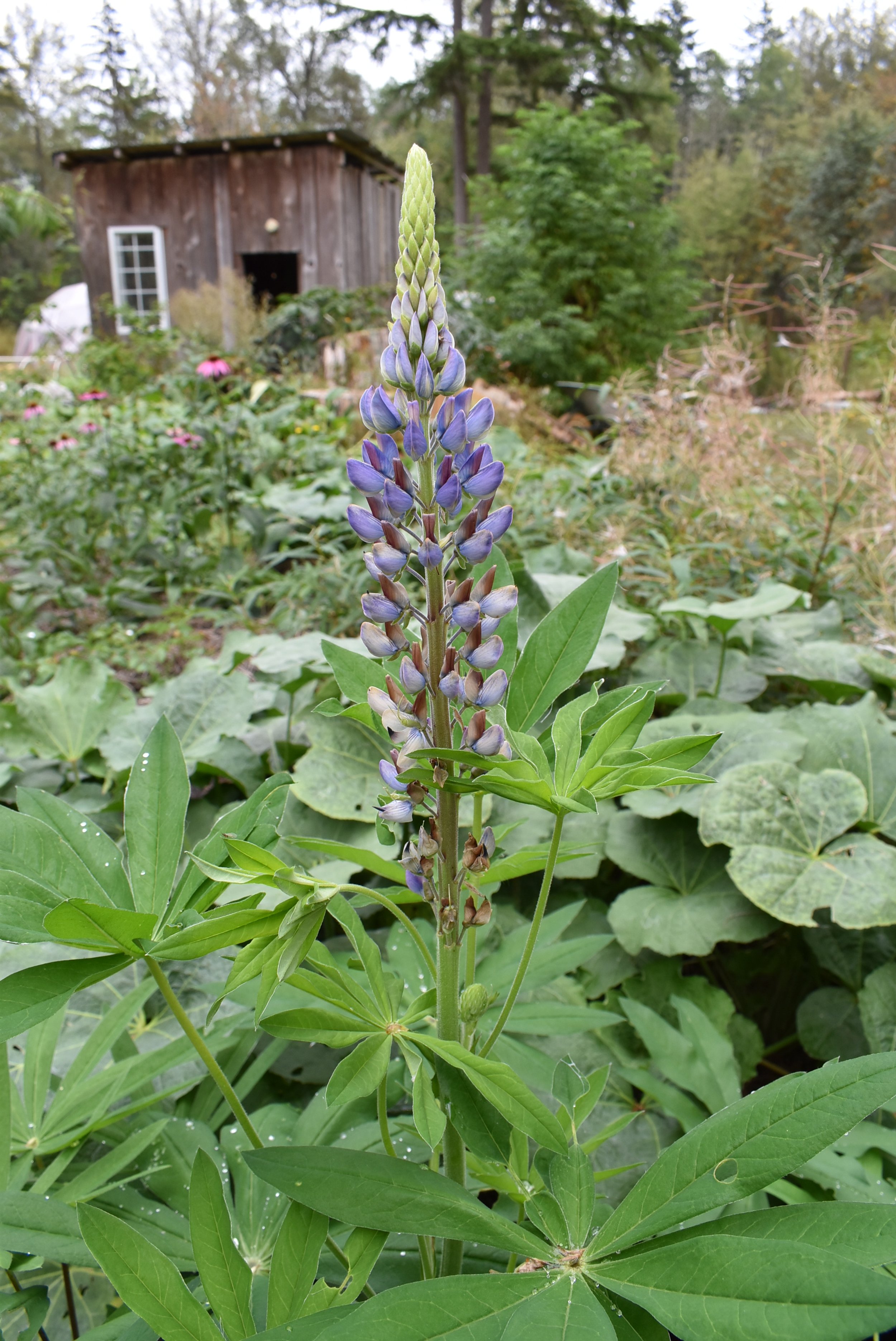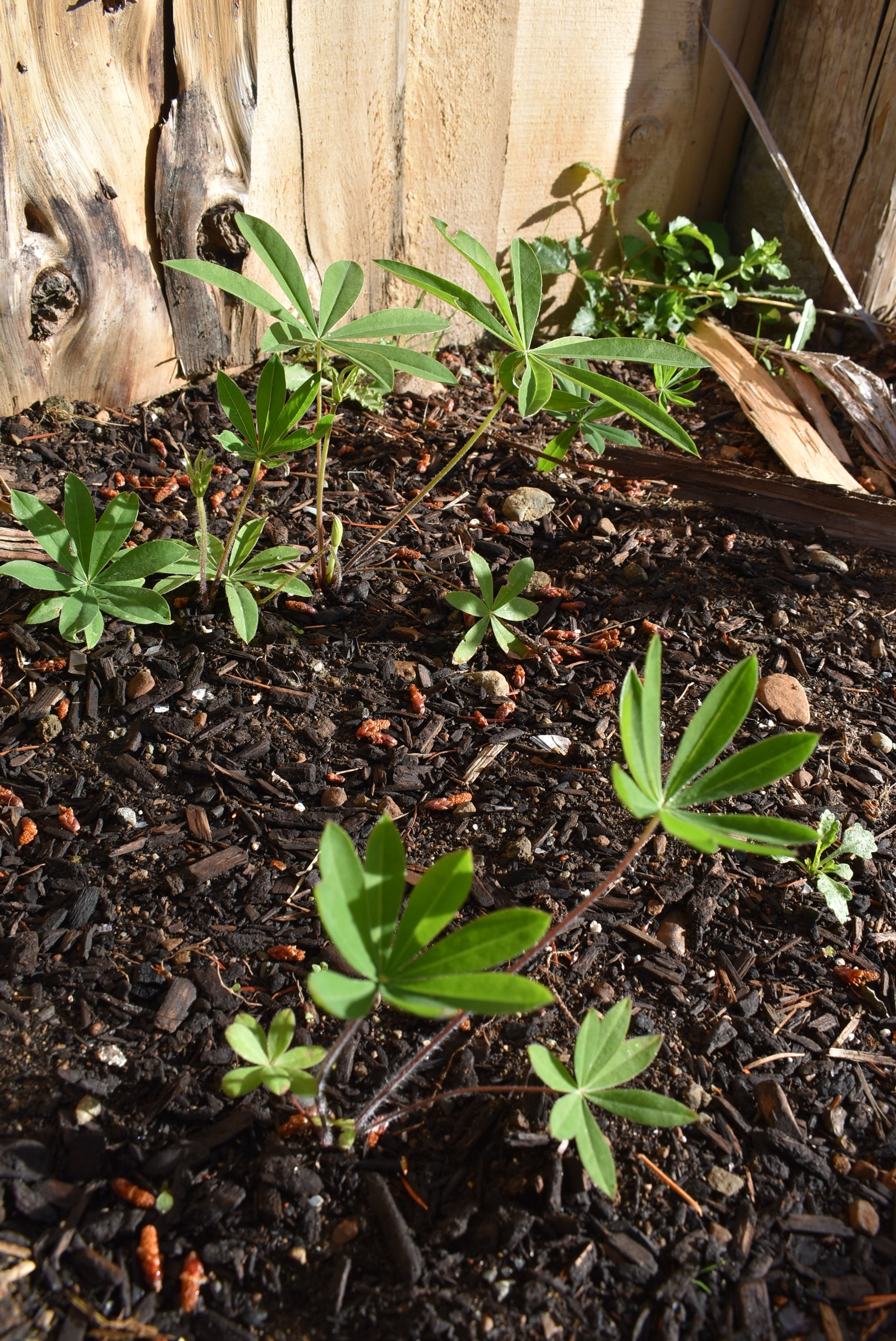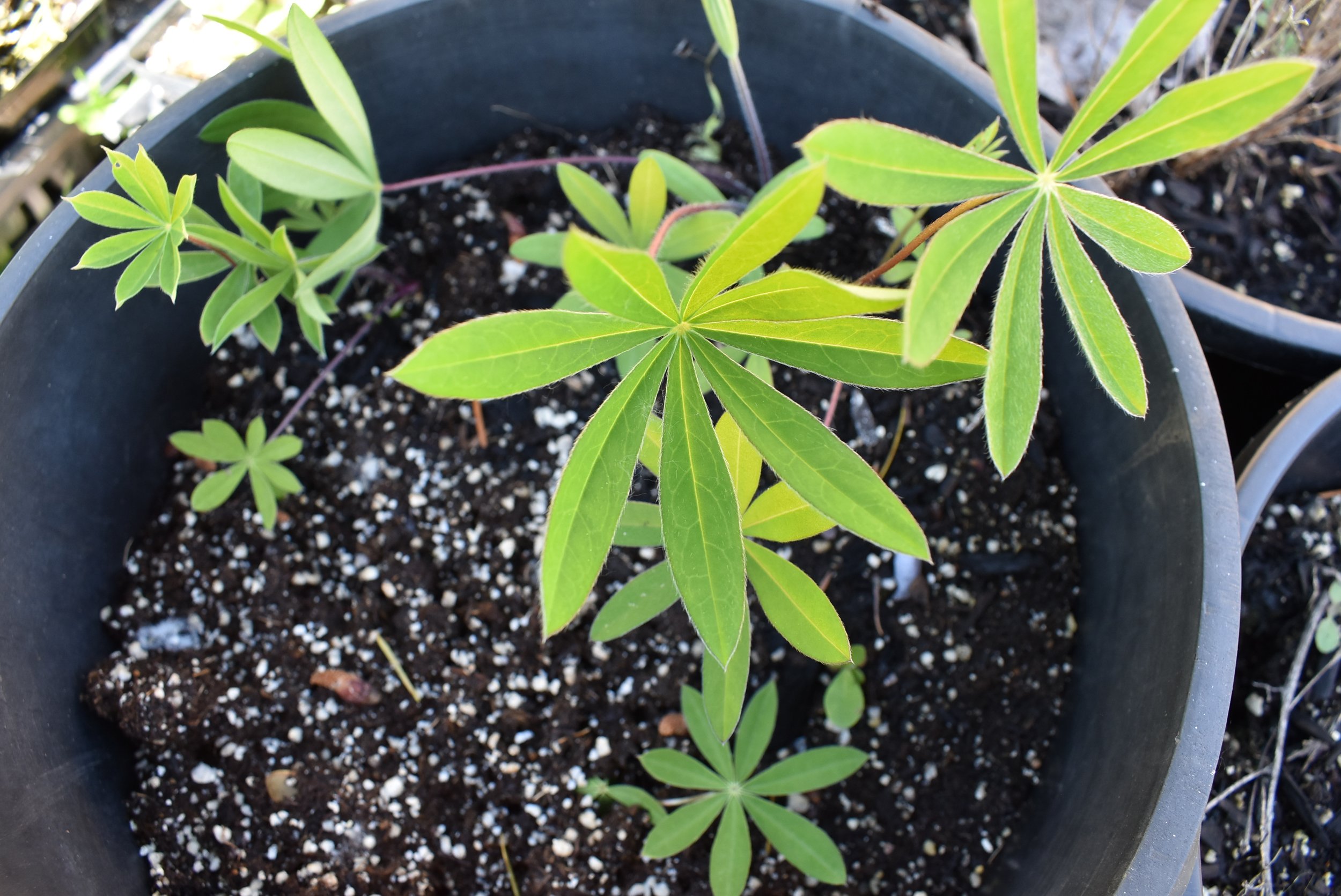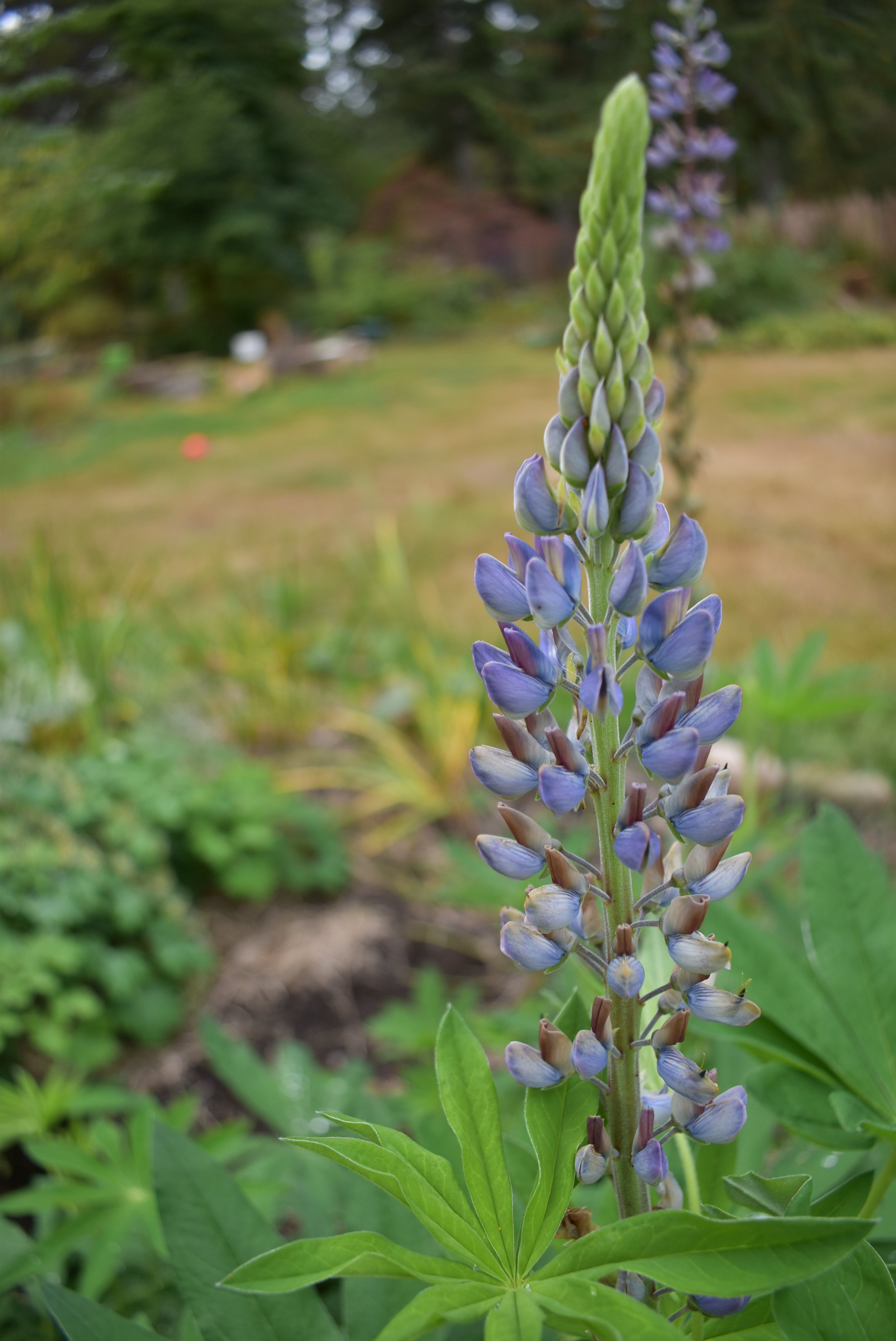Lupin Seeds
Lupin Seeds
Our own sustainably wild-harvested Lupin (Lupinus polyphyllus) seeds for organic growing.
All seeds are grown on our farm without the use of chemicals; and are open-pollinated, hybrid-free and GMO-free.
1 pkg (approx. 30 seeds)
Common Names
Large-Leaved Lupin, Wild Lupin
Botanical Name
Lupinus polyphyllus
Plant Family
Fabaceae (Pea Family)
Native Range
PNW, Vancouver Island, and Coastal Washington.
Life Cycle
Perennial
Hardiness Zone
3-10
Habit
3.5-4.5 ft tall. Graceful, busy plants have large palmate leaves with purple-blue flowers that are produced on long lush spikes. Very showy.
Sun/Soil
Prefers full sun and well drained soil. Tolerates poor soil, but does not tolerate heavy clay soils or winter flooding.
Germination/Sowing
Seeds are best direct sown in fall. If sowing in spring the seeds benefit from scarification, or soaking overnight before planting.
Growing/Care
Plants are drought tolerant, and fix nitrogen in the soil. They will self seed and naturalize; this can be prevented by cutting back or harvesting the flowers before they go to seed.
Harvesting
N/A
Culinary Uses
The entire plant is considered toxic.
Medicinal Uses
N/A
Themes
Native Plant Garden, Drought Tolerant, Attracts Pollinators, Low Maintenance, Deer Resistant, Cut Flowers.




